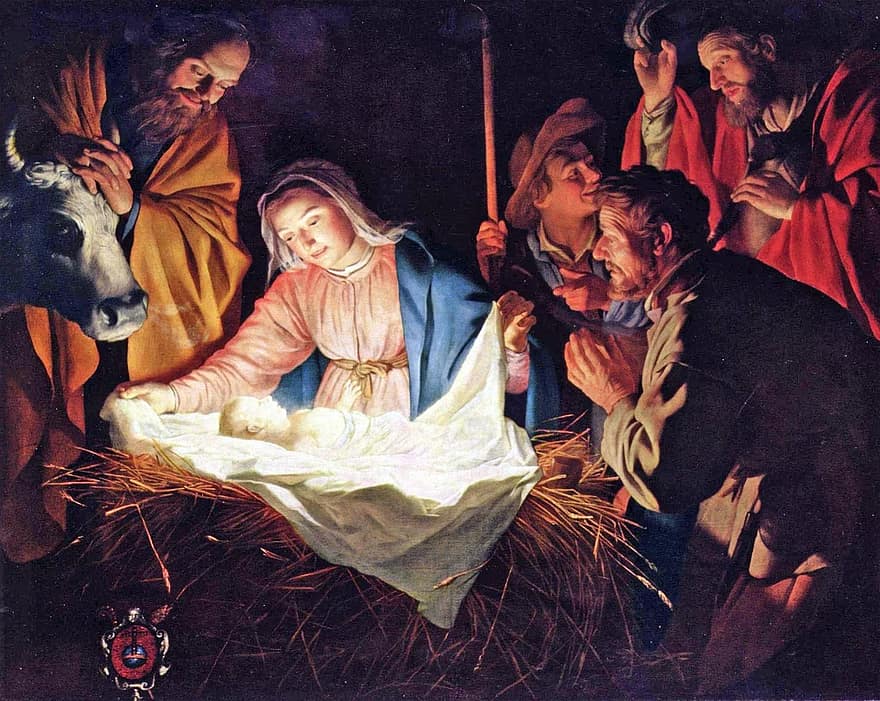Zoals ontvangen via twitter. We zetten dus alleen de ontvangen tweets voor u op een rij:
A number of my Christian friends asked me why Jews don’t recognize Isaiah 7 as discussing the virgin birth… (this is gonna be long).
In the interest of understanding I will explain how we translate the verses in Isaiah according to Judaism. This is not for open debate.
Before we translate, It’s important to understand some things first. The year is about 600 B.C.E. & King Ahaz is king of Judah at a time,
when Israel & Judah were at war. Rezin, King of Aram & Pekah King of Israel were planning to attack King Ahaz.
As a result, Ahaz was worried that Rezin & Pekah would overthrow his kingdom & conquer Judah. Isaiah is sent to Ahaz with a message from G-d
G-d tells Ahaz not to worry, that the 2 kingdoms (Rezin & Pekah) will not triumph against him & that his kingdom will remain.
What’s the message Isaiah gives Ahaz to assure him of victory in battle? According to Christians, a virgin birth 600 years in the future.
The Sign that Isaiah gives to Ahaz must be something that he can see, the sign must be obvious to him.
The woman Isaiah was talking about was not a virgin birth 600 years in the future but the birth of King Hezekiah in Chapter 8 & 9. Immanuel
The young woman gives birth the very next chapter which is a sign to Ahaz that he will be victorious in battle.
Obviously a birth 600 years in the future would be of no help to him. For a child HAS been born to us, a son HAS been given.
The words in Isaiah are discussing events which happened, past tense. The scripture does not say a child WILL be born, but HAS been born.
Since this event happened 600 years before the birth of Jesus, it is not a proper translation to use past tense for future events.
Isaiah uses the word Besulah or Virgin 8 times in the book of Isaiah EXCEPT when Isaiah speaks to Ahaz about the birth of his sign.
Isaiah uses the word Besulah or Virgin 8 times in the book of Isaiah EXCEPT when Isaiah speaks to Ahaz about the birth of his sign.
In fact, this is the only time Isaiah uses the word Na’arah which means a young woman & specifically NOT a Virgin woman.
In order to use this sentence to support a Virgin birth, the early Romans mistranslated the word Na’arah as Virgin when it doesn’t mean so.
Actually, Genesis 34:3 uses the word Na’arah in relation to Dinah, daughter of Jacob being raped by Hamor. It was a violation, unholy union.
Kings II, chapter 16 discusses the battle between Ahaz, Rezin & Pekah & says they were unable to defeat him exactly as Isaiah prophesied.
The sign that Ahaz needed to feel confident he would not be defeated was not a birth in the future, but the birth of King Hezekiah his son.
Hezekiah, Ahaz’s very son was the sign that Isaiah gave to Ahaz. His very own son was the proof he needed that G-d was with him in battle.
Chronicles II Chapter 32 says that Hezekiah (God is my Strength, God is with us) says that he was exalted in the eyes of all the nations.
As Jews we believe that this prophecy was fulfilled in the birth of Hezekiah in Chapter 8 & 9 because the sign was for Ahaz in 600 B.C.E.
I know this was long but I felt that it would be worthwhile since this question comes up time & time again. Thank you for letting me explain
Now that you my Christian friends understand how Jews read Isaiah, you can see why we do not view Isaiah 7 as discussing Jesus.
Eén van de reacties slaat de spijker op de kop: Het kan gaan om een profetische tekst. Profetie is de Bijbel is soms behoorlijk ingewikkeld, en vereist de nodige studie. Wat opvalt bij profetieën in de Bijbel is dat sommige volledig zijn vervuld, anderen deels (waarbij het tweede deel van de profetie naar de toekomst verwijst), en sommige een ‘dubbele’ vervulling lijken te hebben, oftewel ze zijn op meerdere gebeurtenissen toe te passen.
In het Oude Testament is veel symboliek die naar Jezus verwijst. Het is dus goed mogelijk dat @zionistforever gelijk heeft, maar dat de tekst ook naar de maagdelijke geboorte verwijst. Om eerlijk te zeggen hebben wij daar geen studie naar gedaan, maar we zien reacties graag hieronder!


Nog geen reacties